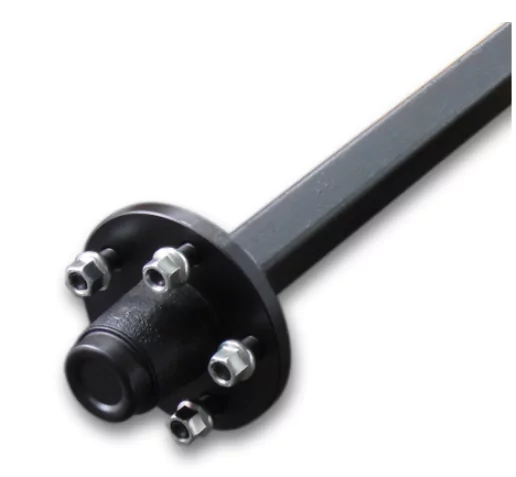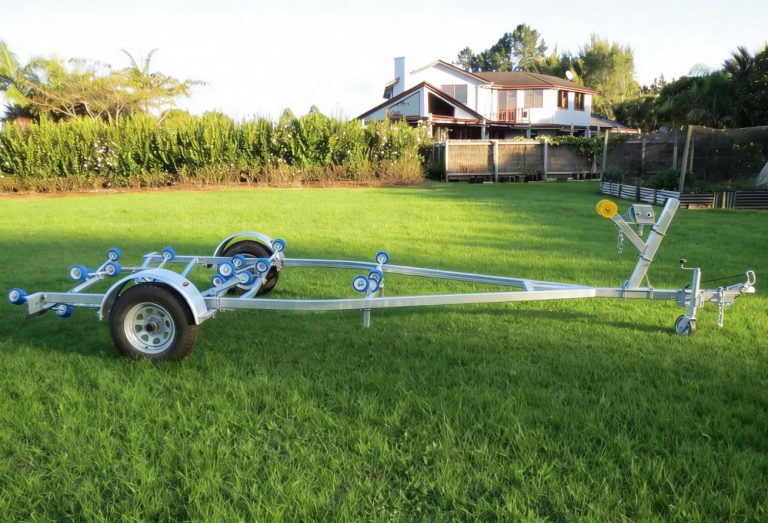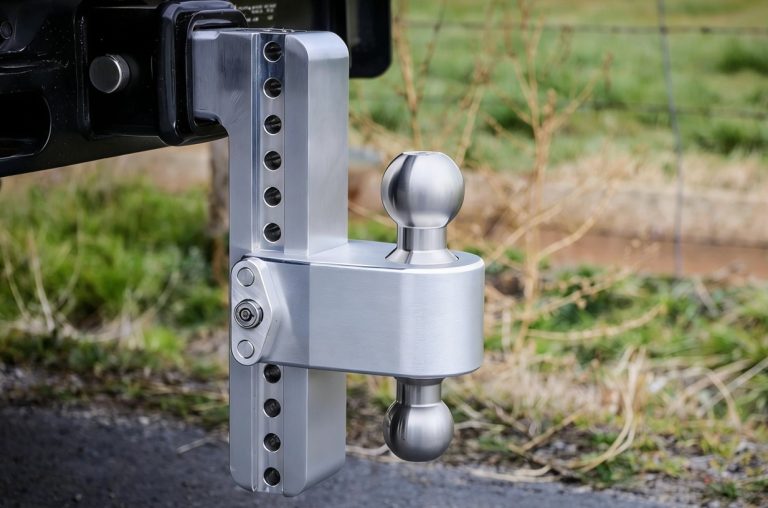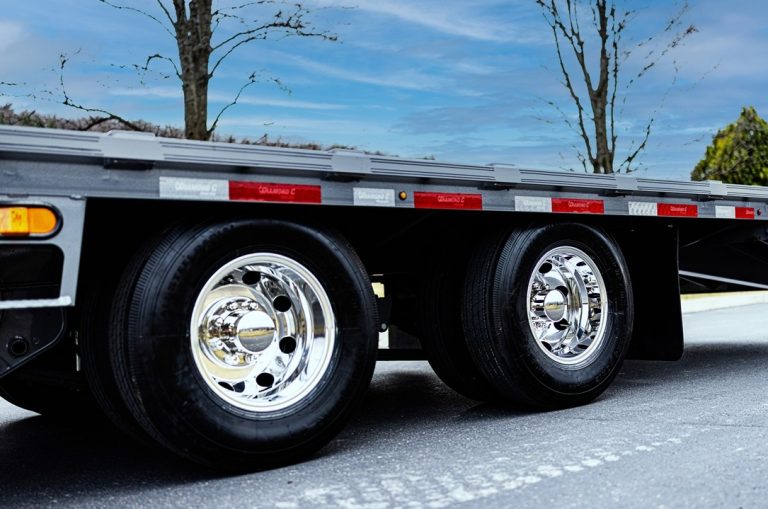Trailer axles are critical components in the overall functionality and effectiveness of transportation systems, ensuring that vehicles can handle loads efficiently while maintaining stability and control on the road. Understanding the importance of trailer axles is essential for those in the transportation industry, particularly with the ever-increasing demand for efficiency and reliability in logistics. This article will delve into the numerous factors involving trailer axles and their vital role in enhancing transportation efficiency.
The Essential Role of Trailer Axles
The primary function of trailer axles is to support the weight of the trailer, providing a point of rotation and facilitating the movement and stability of the load being transported. Without axles, trailers would not be able to operate effectively; they would lack the structural support necessary for safe maneuverability. Moreover, trailers equipped with proper axles offer enhanced traction, allowing for smoother transportation, especially over varying terrains. Additionally, axles distribute the trailer’s weight evenly across the wheels, preventing undue stress on any single component and thereby enhancing the lifespan and reliability of both the trailer and its attached vehicle.
Axle Capacity and Load Management
Axle capacity is a critical consideration when assessing a trailer’s performance. It refers to the maximum weight an axle can safely support and is inherently tied to the design and materials used. By understanding and managing the axle’s load capacity, transportation professionals can ensure that the trailer operates within safe limits. Overloading can lead to premature wear and even catastrophic failure, underscoring the importance of adhering to the manufacturer’s specifications for axle capacity. Proper load management not only ensures safety but also optimizes the overall efficiency of transportation operations.
The Advantages of Upgrading Trailer Axles and Hubs
Enhanced Fuel Efficiency
Upgrading to advanced trailer axles and hubs can lead to significant improvements in fuel efficiency. When modernized axles are utilized, they often feature improved aerodynamic designs and reduced rolling resistance. This means that trailers equipped with high-quality axles can transport loads requiring less energy, contributing to lower fuel consumption.
Components Contributing to Improved Efficiency
In addition to the axle design, other elements, such as the hubs and wheels, play a crucial role in enhancing overall efficiency. High-quality bearings minimize friction, further aiding in fuel savings. The integration of lightweight materials in axle construction can also contribute to a reduction in total vehicle weight, leading to improved fuel economy.
Real-World Impact on Fuel Economy
Numerous case studies have shown that companies that invest in upgraded trailer axles have observed measurable reductions in fuel costs, translating to significant savings over time. For fleets operating on tight margins, these savings are invaluable and can be reinvested in other areas of the business.
Increased Durability and Longevity
Investing in superior trailer axles is synonymous with embracing increased durability and longevity. High-quality axles are constructed from robust materials that can withstand the rigors of transportation, including heavy loads and rough terrains.
Material Quality and Engineering Standards
Modern advancements in material science have led to axles being manufactured using specialized steel alloys that resist wear and tear better than their predecessors. Similarly, engineering standards have evolved to ensure that trailer axles can handle demanding conditions while maintaining structural integrity over extended periods.
Effects on Maintenance and Downtime
As durability increases, maintenance overheads naturally decrease. Reliable axles minimize the risk of trailer breakdowns, leading to less downtime for repairs, which is a significant factor in vehicle operating costs. Reducing the frequency of maintenance tasks allows transportation companies to focus more on their core business, enhancing overall productivity.
Types of Trailer Axles
There is a variety of trailer axles available, each catering to specific needs and applications. Understanding these different types helps in making informed decisions in the purchasing process.
Disc-braked Axles
Disc-braked axles are preferred for their superior stopping power and heat dissipation. They provide enhanced performance during emergencies, often leading to shorter stopping distances. As a result, they contribute significantly to the safety of trailer operations, especially when carrying heavier loads.
Non-braked Axles
Non-braked axles, while simpler in design, are suitable for lighter trailers. This type of axle is appropriate for smaller and less heavy loads, where additional braking power is unnecessary. Understanding the applications where non-braked axles are effective is essential for optimal trailer performance.
Take Go Trailer’s 40mm Square Non-Braked Axle as an example. It is a comprehensive set that includes all the essential components for a smooth and reliable operation. It features two 6-stud 190mm hubs, two inner bearings, two outer bearings, two dust caps, and two seals, all meticulously crafted to ensure durability and longevity. Crafted from high-quality steel, this 40mm square axle boasts a 1000kg capacity, making it suitable for lighter loads and applications.
Designed for simplicity and cost-effectiveness, these axles provide an ideal solution for short-distance transportation or use on flat terrains where high-speed travel is not anticipated. Whether you’re hauling tools and equipment around the farm or transporting supplies to a nearby job site, these non-braked axles offer a reliable and efficient way to get the job done.

Drum-braked Axles
Drum-braked axles represent a traditional solution in the market. They are capable of handling good levels of braking and are often more cost-effective than disc brakes. Their reliability and proven history make them a choice for many trailer configurations, particularly in agricultural or construction applications.
For example, the robust 45mm Round Mechanical Brake Axle of Go Trailer is crafted from durable steel for exceptional strength and longevity. This axle boasts a formidable 1500 kg capacity, ensuring it can easily handle even the heaviest loads. Equipped with a 9-inch mechanical drum hub featuring a 5-stud pattern on a 4.5-inch bolt circle, it seamlessly fits a wide range of trailers, including boat trailers, car trailers, and cage trailers.
Whether navigating on smooth roads or traversing rugged terrain, these mechanical drum-braked trailer axles deliver consistent braking performance. Their versatility extends to tandem and tri-axle configurations, further bolstering the stability and load-carrying capacity of your trailer. Choose this axle for a safe, dependable, and high-performing trailer solution.
Choosing the Right Axle Brand: Go Trailer
Advantages of Go Trailer
When it comes to selecting a reliable axle brand, Go Trailer is a prominent choice that has gained traction in the transportation industry. Their axles are recognized for their high-quality construction and performance. One significant advantage of Go Trailer axles is their robust design, which ensures excellent weight distribution and stability, crucial for managing heavy loads during transit. Additionally, Go Trailer is known for innovative solutions that cater to the specific needs of haulers, including enhanced corrosion resistance, which significantly prolongs the axle life, especially in adverse weather conditions. Furthermore, the manufacturer offers a comprehensive customer support system, making it easier for transportation professionals to obtain the necessary information and assistance when required.
The Role of Multi-Axle Trailers in Transportation Efficiency
Advantages of Multi-Axle Configurations
Multi-axle trailers are an effective solution for improving transportation efficiency. One of the primary advantages of multi-axle configurations is improved weight distribution. With more axles in the setup, weight is spread over a larger surface area, reducing the risk of overloading any single axle. This results in better handling characteristics, especially during sharp turns or when navigating uneven road surfaces, promoting safer transport. Moreover, the increased number of wheels enhances overall traction, which is critical for maintaining speed and stability, particularly in challenging conditions or on inclines.
Another notable benefit includes enhanced safety and stability. Multi-axle trailers possess a lower center of gravity, augmenting the trailer’s balance and making it less susceptible to swaying or tipping during transportation. This quality is particularly vital when hauling heavy equipment or materials, where maintaining control is paramount. Multi-axle configurations can also offer better braking performance since the distribution of braking pressure is more evenly shared across multiple axles, reducing the chances of brake failure and enhancing overall safety.
Common Applications for Multi-Axle Trailers
Multi-axle trailers are versatile and utilized across various industries for specialized applications. In the construction sector, these trailers commonly transport heavy machinery and equipment, such as cranes and excavators, where weight distribution and stability are essential for safe transport. Additionally, in the agricultural industry, multi-axle trailers are indispensable for hauling large quantities of goods—ranging from grains to livestock—ensuring efficient logistics management.
The logistics and transportation sectors also benefit significantly from multi-axle trailers, particularly in the delivery of oversized items. Haulers utilizing multi-axle configurations can adhere to regulatory requirements regarding weight limits while efficiently moving goods over long distances. Such trailers provide a distinct advantage, allowing for increased payload capacity while maintaining compliance with road safety standards. This adaptability across various applications showcases the multi-axle trailer’s relevance in contemporary transportation solutions.
Summary
In conclusion, trailer axles serve as a vital component in enhancing transportation efficiency. From the structural integrity provided by robust designs to the vital role of load management and improved fuel efficiency through axle upgrades, the benefits are numerous. Moreover, selecting the right axle brand, such as Go Trailer, can ensure superior performance and durability. Additionally, the implementation of multi-axle configurations further bolsters transportation efficiency by optimizing weight distribution and enhancing safety. By understanding the intricacies of trailer axles and their applications, transportation professionals can significantly improve the effectiveness of their operations and ultimately achieve greater success in the logistics industry.






